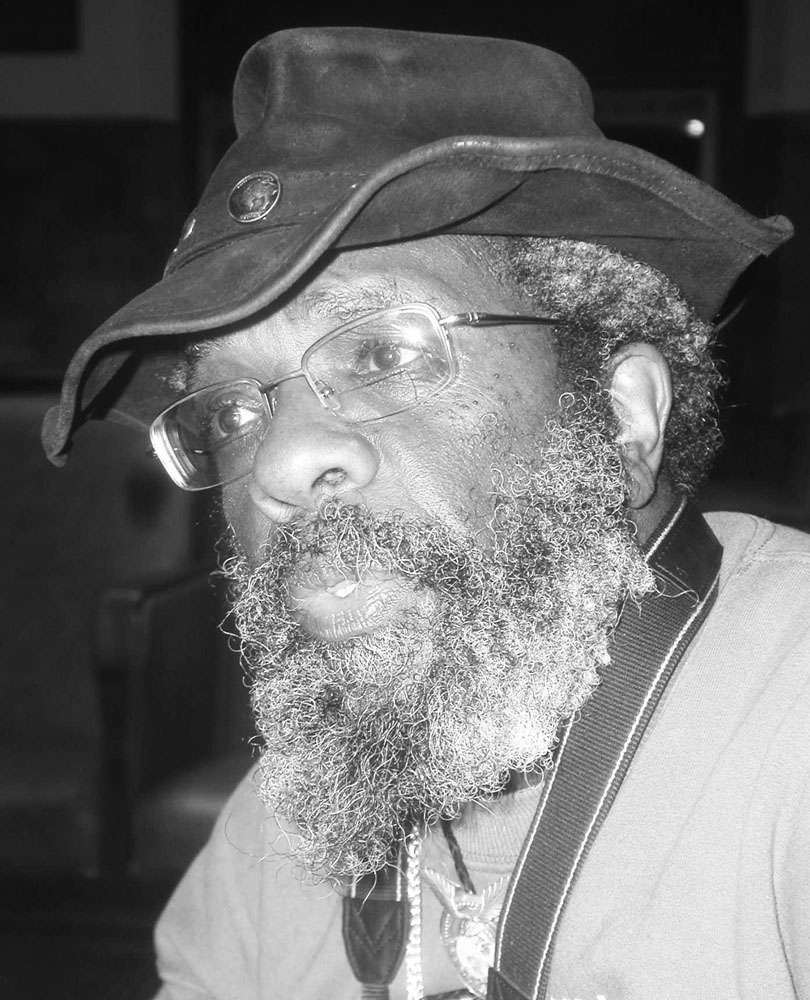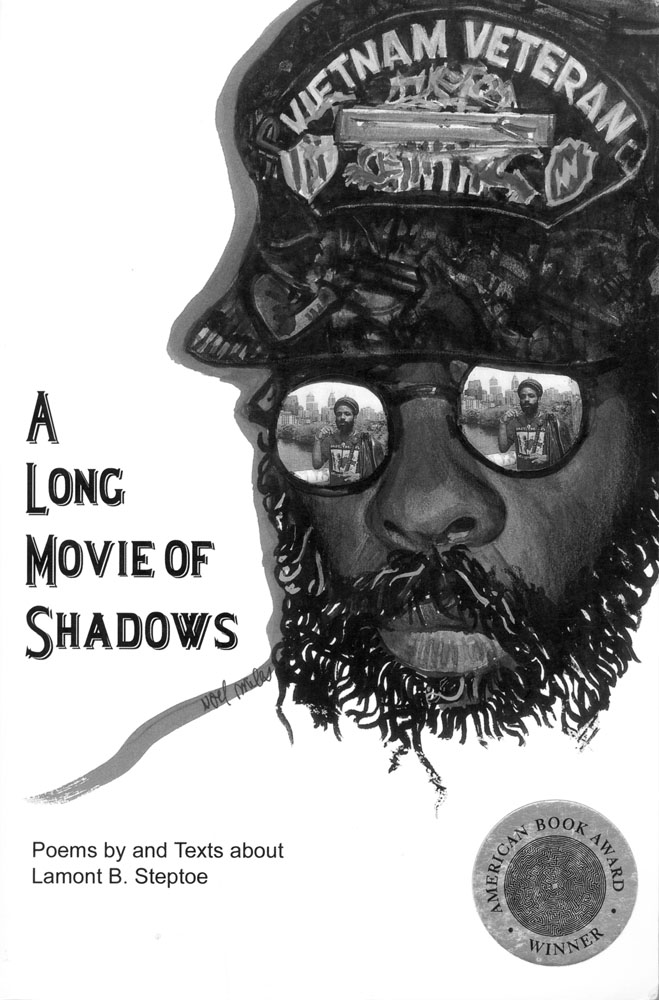 |
Meeting Lamont B. Steptoe, Warrior WriterBy Horace ColemanI met poet (Army scout, dog handler, 'Nam vet) Lamont Steptoe during a lay over in LA on the cross country trip he'd made from the East Coast.
How many 'Nam vets do you know who'd dropped out of college so they could enlist? And, how many people selected for Officer Candidate School do you know who dropped out of it because they "didn't want to lead men to their death" even after being told quitting would guarantee a funky assignment? Steptoe got in country a few months after I'd left the "green war" as he calls it. The death of Martin Luther King greeted me less then than two months after I was back in "the world." That same event drove him to a place where he traded one circle of hell for another, lower and broader, level of anguish and death. He got a CIB, a Bronze Star, and eventually, a 100% PTSD rating. He walked point and was first in strange boony places where no round eye had been ever or recently. One of the dogs he worked with had two kills. The title poem of his poetry collection Uncle's South China Sea Blue Nightmare has many stanzas that begin with the words "In country." Each stanza stands by itself as a poem and links thematically with the others in a mini Iliad: you scream "How many cellars / of fear are there sky scraper deep / in earth with oceans of fire above / and the sea lobster red?" You come across memories about things you treasured or loathed: ice could usually be found / only in snack bars, clubs / and the eyes of those who / had killed too many times On another page you find yourself standing outside a mortuary, say one with aluminum shipping coffins stacked stories high: graves registration / was always busy with choppers / landing day in and day out / night in and night out / returning American dead / to the American living / to wrap, pack, sew, tack, / tape and stuff for the long, long / journey back to North America / and for the long journey still / across the uncharted regions / that only spirits know / but rarely speak of . . . . . . And on the facing page: Many find God / in the first burst / of automatic rifle fire / that rips a friend's belly open / like a can of hastily open beans / Some discover God / or Jah or Yaweh or Jehovah / in the crash of mortars / that quake the earth and buildings / with angry exhortations / Others came to know / the all-seeing eye / the moment a friend / gasped a final thought / through lips thick with blood The horrible, the tender, the descriptive and the hinted at mingle and mix. Steptoe needs few words to weave pictures: tears flowed like sweat / on both sides / on both sides / blood ran like milk white rubber / pooling on leaves of grass some dreams saved your life / drugged you senseless / to keep you from waking up / to a night mare His words paint the beauty of Vietnam: one morning three thousand feet up / while the world was wrapped / in the body bag of night / the sun ambushing our search and destroy mission The Amtrak from San Francisco was late but even after the five-hour-plus ride from San Francisco Steptoe was gracious, wide awake and full of anecdotes and information. Among his favorite writers are Samuel Allen (a lawyer, pen name Paul Vesey, first published by Richard Wright). And, Bruce Weigl (The Monkey Wars, Song of Napalm, numerous fellowships). Also, Gwendolyn Brooks (Pulitzer Prize, Consultant in Poetry at the Library of Congress) and the late South African anti-apartheid activist Dennis Brutus. Poet Sonia Sanchez with whom he traveled to Nicaragua (when Uncle Sammy was helping the Contras) is another favorite. Besides visiting the countryside, Steptoe and Sanchez demonstrated outside the US Embassy. An essay "Lamont B. Steptoe as Contemporary Griot" by Don Riggs is in Steptoe's poetry collection A Long Movie of Shadows which won an American Book Award. Riggs' definitions of griot include genealogist, historian, warrior, outcast, performer and exhorter. Steptoe, a graduate of Temple University, is all that and more. There's a saying on the back of souvenir jackets some GIs bought in 'Nam, "When I die I'll go to heaven because I've spent my time in hell." Steptoe hasn't died but he's spent time in both places. Here are two poems from his award winning book.
Spider Holes Who survived? 'Nam don't mean nothin'—but every thing. It's a large part of Steptoe's writing but hardly all he has to say. Lamont B. Steptoe's latest book is Oracular Rumblings and Stiltwalking. He's the author of, among other works, Crowns and Halos, Between Thresholds,In the Kitchens of the Masters, Dusty Roads: A Vietnam Suite, Catfish and Neckbone Jazz, and Mad Minute. He's the editor of leafdrift, a collection of poems by Dennis Brutus.
|



